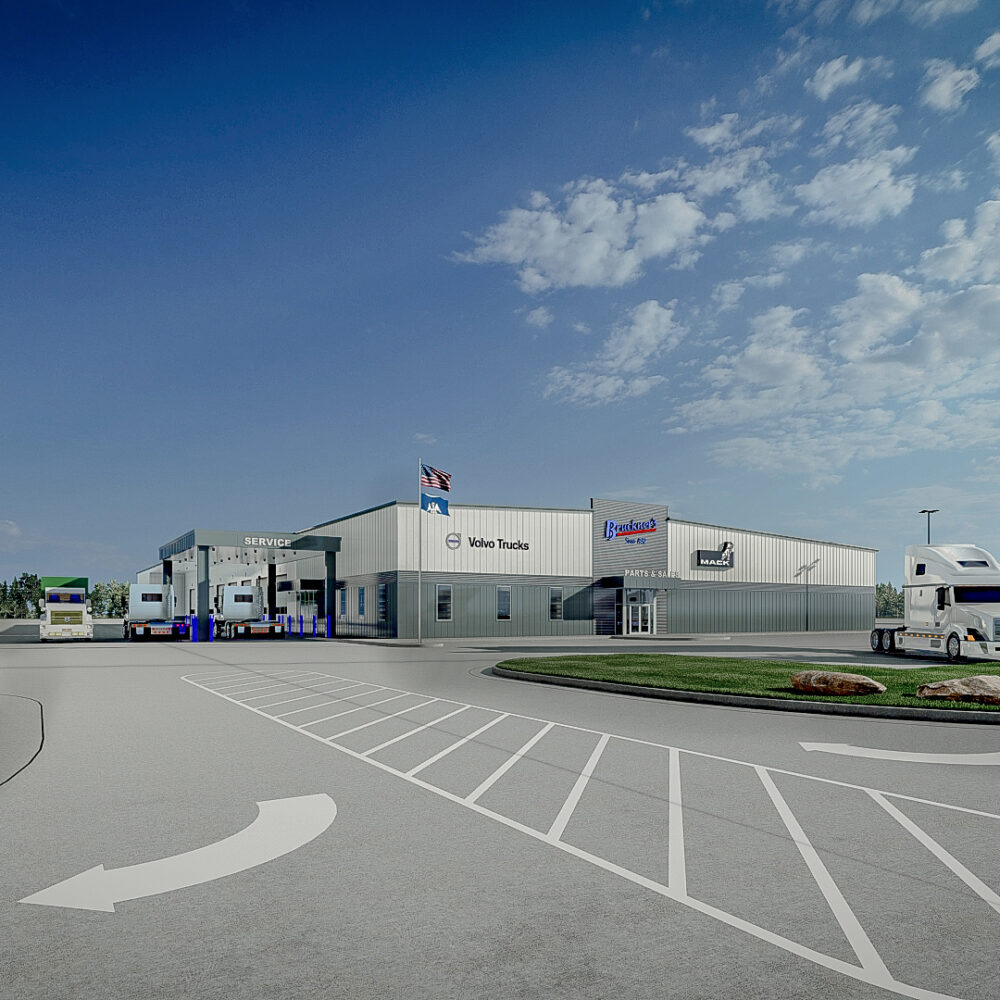Truck dealerships are more than just places to buy vehicles; they are vital hubs for businesses and individuals who rely on trucks for their livelihoods and daily tasks. From heavy-duty workhorses that haul construction materials to versatile pickups used for personal and professional purposes, truck dealerships provide access to the vehicles that power our economy and enable countless activities. Choosing the right truck and the right dealership is a significant decision, involving careful consideration of needs, budget, and long-term operational costs. This comprehensive guide will navigate you through the world of truck dealerships, providing the knowledge and insights necessary to make informed decisions.
I. Understanding the Role of a Truck Dealership
Navigating the World of Truck Dealerships: A Comprehensive Guide
A truck dealership is a business that specializes in selling new and used trucks. Unlike car dealerships, they often cater to a broader range of customers, from individual consumers to large commercial fleets. They offer a variety of services beyond just sales, including:
- Sales: Selling new and used trucks of various makes, models, and configurations.
- Financing: Providing financing options to help customers purchase trucks.
- Service and Maintenance: Offering maintenance and repair services to keep trucks running smoothly.
- Parts: Selling replacement parts and accessories for trucks.
- Customization: Assisting customers with customizing their trucks to meet specific needs.

The importance of a reputable truck dealership cannot be overstated. They act as a trusted advisor, helping customers select the right truck for their specific applications, offering financing solutions, and providing ongoing support to keep their vehicles operational.
II. Types of Truck Dealerships
Truck dealerships can be categorized in several ways, primarily based on the brands they carry and the types of trucks they specialize in:
- Franchised Dealerships: These dealerships are authorized by a specific truck manufacturer (e.g., Ford, Chevrolet, Ram, Peterbilt, Kenworth, Volvo) to sell their new vehicles and provide warranty service. They typically offer a wide selection of new models and have factory-trained technicians.
- Independent Dealerships: These dealerships sell used trucks from various manufacturers. They may specialize in specific types of trucks, such as commercial vehicles or pickups. Independent dealerships can sometimes offer lower prices, but it's crucial to carefully inspect the vehicles and verify their history.
- Commercial Truck Dealerships: These dealerships focus on selling heavy-duty and medium-duty trucks for commercial use. They often cater to businesses with fleets of trucks and offer specialized services such as fleet maintenance and leasing options.
- Specialty Truck Dealerships: These dealerships specialize in niche markets, such as vocational trucks (e.g., dump trucks, concrete mixers, garbage trucks), or trucks with specific modifications for off-road use or other specialized applications.

III. Key Considerations When Choosing a Truck Dealership

Selecting the right truck dealership is just as important as choosing the right truck. Here are some crucial factors to consider:
- Reputation: Research the dealership's reputation online and through word-of-mouth. Look for reviews and testimonials from other customers. Check their rating with the Better Business Bureau.
- Selection: Ensure the dealership offers a wide selection of trucks that meet your needs. This includes considering different makes, models, configurations, and price points.
- Service and Parts: A reliable service department and a comprehensive parts inventory are essential for keeping your truck running smoothly. Inquire about the dealership's service hours, technician qualifications, and parts availability.
- Financing Options: Compare financing options from different dealerships to find the best interest rates and terms. Consider your credit score and budget when exploring financing options.
- Warranty: Understand the warranty coverage offered by the dealership and the manufacturer. A comprehensive warranty can provide peace of mind and protect you from unexpected repair costs.
- Customer Service: Pay attention to the level of customer service you receive from the dealership. Are the sales staff knowledgeable and helpful? Are they responsive to your questions and concerns?
- Location: Choose a dealership that is conveniently located for service and maintenance.
IV. The Buying Process at a Truck Dealership: A Step-by-Step Guide
The buying process at a truck dealership typically involves the following steps:
- Research and Planning: Define your needs and budget. Research different truck models and dealerships.
- Visiting Dealerships: Visit several dealerships to compare vehicles, prices, and financing options.
- Test Driving: Test drive the trucks you are interested in to get a feel for their performance and handling.
- Negotiation: Negotiate the price of the truck and any trade-in value.
- Financing: Secure financing through the dealership or a third-party lender.
- Paperwork: Complete the necessary paperwork, including the purchase agreement, financing documents, and registration forms.
- Delivery: Take delivery of your new truck.
V. Tips for a Successful Truck Dealership Experience
- Do your homework: Research different truck models and dealerships before you start shopping.
- Be prepared to negotiate: Don't be afraid to negotiate the price of the truck and any trade-in value.
- Get pre-approved for financing: This will give you more negotiating power and make the buying process smoother.
- Read the fine print: Carefully review all paperwork before signing anything.
- Don't be afraid to walk away: If you're not comfortable with the deal, don't be afraid to walk away and find another dealership.
- Consider an extended warranty: An extended warranty can provide peace of mind and protect you from unexpected repair costs.
- Build a relationship with the service department: A good relationship with the service department can help you keep your truck running smoothly for years to come.
VI. Potential Challenges and Solutions
- High Prices: Truck prices can be high, especially for new models. Consider buying a used truck or exploring financing options to make the purchase more affordable.
- Solution: Negotiate aggressively, explore used options, consider leasing, and shop around for the best financing rates.
- Limited Availability: Some truck models may be in high demand and have limited availability. Be patient and be willing to wait for the right truck.
- Solution: Be flexible with your options, consider ordering a truck, and check with multiple dealerships.
- Complex Financing: Truck financing can be complex, especially for commercial vehicles. Work with a knowledgeable finance manager to understand your options and find the best financing solution.
- Solution: Get pre-approved, understand the terms, and compare offers from different lenders.
- Service and Maintenance Costs: Truck service and maintenance can be expensive. Choose a dealership with a reputable service department and consider purchasing a service contract.
- Solution: Research service costs, negotiate service contracts, and perform routine maintenance.
VII. Truck Dealership Pricing
| Feature | Description | Estimated Price Range |
|---|---|---|
| New Truck (Pickup) | Base model, standard features | $30,000 - $60,000 |
| New Truck (Heavy Duty) | Work truck, basic configuration | $50,000 - $100,000+ |
| Used Truck (Pickup) | Older model, varying mileage and condition | $15,000 - $45,000 |
| Used Truck (Commercial) | Depending on year, mileage and condition. | $20,000 - $80,000+ |
| Service Contract | Coverage for repairs and maintenance over a specified period | $1,000 - $5,000+ (depending on coverage and term) |
| Extended Warranty | Additional coverage beyond the manufacturer's warranty | $500 - $3,000+ (depending on coverage and term) |
| Accessories | Bed liners, toolboxes, running boards, etc. | $100 - $2,000+ (depending on the accessory) |
| Routine Maintenance | Oil change, tire rotation, etc. | $100 - $500+ (depending on the service and the truck) |
| Major Repair | Engine repair, transmission repair, etc. | $1,000 - $10,000+ (depending on the repair) |
| Financing Interest Rate | Annual Percentage Rate (APR) for a truck loan | Varies based on credit score, loan term, and lender. Typically 5% - 15% or higher. |
VIII. Frequently Asked Questions (FAQ)
- Q: What is the difference between a franchised and an independent truck dealership?
- A: Franchised dealerships are authorized by a specific manufacturer to sell their new vehicles and provide warranty service. Independent dealerships sell used trucks from various manufacturers.
- Q: How do I negotiate the price of a truck?
- A: Research the market value of the truck, be prepared to walk away, and focus on the total cost of ownership, including financing and insurance.
- Q: What is a good credit score for financing a truck?
- A: A credit score of 700 or higher is generally considered good and will qualify you for the best interest rates.
- Q: Should I buy a new or used truck?
- A: The decision depends on your budget, needs, and risk tolerance. New trucks offer the latest technology and warranty coverage, while used trucks are more affordable but may require more maintenance.
- Q: What is the best way to find a reputable truck dealership?
- A: Research dealerships online, read reviews, and ask for recommendations from friends and colleagues.
Conclusion
Navigating the world of truck dealerships requires careful planning and research. By understanding the role of dealerships, considering key factors, following the buying process, and being aware of potential challenges, you can make an informed decision and find the right truck to meet your needs. Remember to prioritize reputation, selection, service, and financing options. With the right approach, you can secure a reliable vehicle and build a lasting relationship with a trusted dealership, ensuring your trucking needs are met for years to come.
